Welcome to the glossary of grokkistry
Grokkists love language. Perhaps it’s because we’re so often misunderstood, and we know how much it matters what we call things. Words have the power to name experiences for what they feel like from the inside, bringing clarity and connection to the complex and ambiguous.
This glossary begins with two words at the heart of everything we do: grok and grokkist. These foundational terms set the stage for the rest of the entries, which are presented in alphabetical order. Together, they form a shared vocabulary—an evolving language of curiosity and care.
The glossary curates luminous phrases that have emerged during our gatherings and highlights terms of art we use as a community. Some of these concepts are uniquely Grokkist; others are borrowed from wider traditions but resonate deeply in our context. Explore to find concise definitions, meaningful contexts, and links to longform pieces for deeper dives. This is more than a glossary—it’s a weaving of words that reflects our collective journey.
Last updated 23 April 2025
grok
To understand something deeply, intuitively, and holistically—to fully absorb it and make it a part of you, as you become a part of it.
The term grok originates from Robert Heinlein’s 1961 sci-fi novel Stranger in a Strange Land, where it describes a Martian concept with many layers of meaning, including “to drink.” On Mars, drinking water is a profound act of communion, symbolising a complete merging of the drinker with what is drunk. To grok, then, is to so deeply understand something that you become inseparably connected to it.
Beyond Heinlein, grok took on a life of its own, especially in the internet culture of the late 90s and early 2000s. It became shorthand for quickly grasping complex or ambiguous concepts, often with a hands-on, self-taught ethos that contrasted with formal education. To grok was to connect with something on a level deeper than explanation—a practical, working understanding born of curiosity and experimentation.
For grokkists, grokking is a way of moving through the world with curiosity and care, turning information into wisdom and fostering transformative connections. To grok is to drink deeply from the well of understanding, allowing yourself to be changed by what you encounter.
grokkist
A champion of curiosity and care—someone who seeks profound understanding not as a means to an end, but as a way of being in the world.
If to grok means to deeply, intuitively, and holistically understand, then a grokkist is someone who thirsts for that kind of understanding as their compass for navigating life. Grokkists consciously choose to relate to the world through a lens of empathy, exploration, and generosity, embracing complexity and nuance rather than shying away from it.
Being a grokkist means walking paths that are messy, wonderful, and full of contradiction. Curiosity and care are both the questions that guide grokkists and the answers they seek. This way of being often leads them into wonderful, terrible trouble—yet it is through these adventures that grokkists find their way home, weaving connection, meaning, and transformation along the way.
Being a grokkist isn’t just an identity—it’s an active practice of engaging with the world, where the interplay of learning and connection becomes a lifelong source of vitality and purpose.
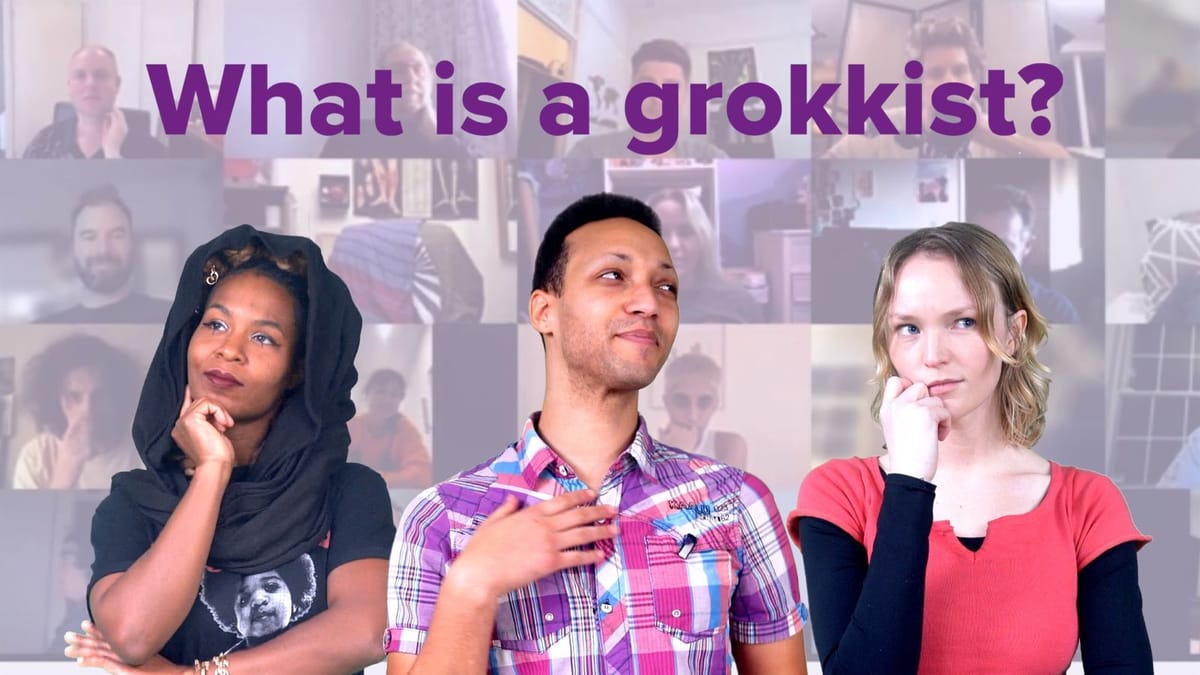
2-year boredom cycle
A pattern where grokkists find themselves ready to move on from a role, project, or pursuit once the initial challenge fades.
This cycle reflects the restless curiosity and drive for growth that characterises many grokkists. It’s not about a lack of commitment but about seeking alignment with deeper questions and passions. When environments fail to grow with us or nurture our curiosity, the cycle kicks in—not as a search for novelty, but as a call to explore new horizons where we can continue to stretch and evolve. [See also: bore-out, squiggly career]
ambivalence
The coexistence of opposing feelings or values, held in dynamic tension.
For grokkists, ambi-valence—literally 'strength on both sides'—represents a capacity to hold complexity and resist oversimplification. It’s a powerful way of being that honours multiple truths and navigates contradictions with grace.

aroreretini
A Māori term for ADHD, meaning “attention goes to many things.”
This framing highlights the expansive, multifaceted nature of attention rather than framing it as a deficit. For grokkists, aroreretini reflects the beauty of diverse ways of thinking and being, inviting us to honour what others might see as distraction as a source of creativity and connection.
beautiful questions
Questions that spark curiosity and connection, offering the possibility for things to be other than they are.
A beautiful question invites reflection and opens up possibility space, deepening human connection. It contrasts with transactional inquiries by centring care and imagination, fostering meaningful dialogue.
Always the beautiful answer who asks a more beautiful question.
– E. E. Cummings
biting your own teeth
A metaphor for the challenge of trying to directly perceive or define yourself, like attempting to bite your own teeth.
This phrase highlights the mystery of self-discovery—that who we are cannot be fully grasped in isolation. For grokkists, self-understanding emerges not from self-definition but through relationships and connections. Other people act as mirrors, reflecting back parts of ourselves that we can’t see alone. [See also: disco ball of mirrors]
You can’t bite your own teeth. You can’t taste your own tongue. And you can’t touch the tip of [your] finger with the tip [of the same] finger. And that is why there is always an element of profound mystery in the problem of who we are.
– Alan Watts
bootstrapped anarchy
A regenerative way of working where agency is cultivated through collective experimentation in the absence of predetermined structures.
Bootstrapped anarchy emerges when no one really knows what to do next, but everyone is encouraged to act as if they do. It’s not chaos—it’s a deliberate, messy, and magical process where people learn to take agency by modelling it for each other. For grokkists, this approach challenges the ingrained habit of seeking permission or predefined roles, creating a space where the group collectively discovers how to move forward by doing. [Credit: Jasmine S]
bore-out (vs burnout)
A state of disengagement and mental exhaustion caused by lack of meaningful stimulation or challenge, as opposed to being overwhelmed.
Bore-out is the shadow side of curiosity left untapped. For grokkists, staying engaged often means seeking environments that challenge and inspire, rather than settling into comfortable stagnation.
canny outlaw
Someone who bends or subverts rules to achieve ethical outcomes, operating outside formal constraints while understanding the system well enough to navigate and influence it effectively.
Coined by Barry Schwartz in Practical Wisdom, the term describes those who act with courage and creativity in rigid systems that often fail to allow for humane or ethical solutions. Canny outlaws aren’t reckless disruptors; they are thoughtful strategists who challenge the status quo to do what’s right. By bending rules without breaking the system, they reveal its limitations and expand what is possible. For grokkists, this role often aligns with the values of curiosity and care, turning the tension between rules and humanity into a source of meaningful change. [See also: principled rebel, system changer]
category of one
A unique identity that defies comparison or categorisation, shaped by your multidimensionality and a deep commitment to following your own path.
Being a category of one is often where the grokkist journey begins. It’s the realization that you don’t fit into the usual moulds—that your curiosity leads you to connect ideas, experiences, and values in ways only you can. This uncategorisable uniqueness is both liberating and daunting. Without clear benchmarks or a peer group to validate your path, you may oscillate between wild confidence and self-doubt.
But this is only the beginning. For grokkists, living as a category of one sparks a deeper exploration—of how the seemingly disconnected threads of your life might weave into a red thread, and of how you might translate your individual gifts into contributions that resonate with others. It’s not about standing apart but about discovering and embracing your role as part of something larger, in a way only you can. [See also: red thread]
coddiwomple
To travel purposefully toward a vague destination, with a clear sense of how you want to journey but an open mind about where you’ll end up.
Coddiwompling captures the essence of the grokkist mindset: embracing uncertainty while staying grounded in curiosity, care, and intent. It’s not about wandering aimlessly but about stepping boldly into the unknown, trusting that the path will reveal itself as you move forward.
For grokkists, coddiwompling isn’t just a way of navigating life—it’s a philosophy of exploration. It reflects a deep commitment to how we journey, prioritising values and relationships over rigid plans or outcomes. In coddiwompling, even detours and surprises become integral parts of the process, teaching us to find meaning and growth in the unexpected.
Coddiwompling also speaks to the courage it takes to live without certainty, to resist the pressure to have all the answers before beginning. It’s a playful, hopeful act of trust in yourself, in the world, and in the possibility that the best destinations are the ones you didn’t plan for—but arrived at because you stayed true to the way you traveled. [See also: kairos clarity]
As you start to walk on the way, the way appears.
– Rumi
cross-pollinating hummingbird
A metaphor for individuals who, like hummingbirds, flit between diverse fields, ideas, or interests, cross-pollinating as they go.
Elizabeth Gilbert introduced the concept of “hummingbirds” to describe people who don’t have a single passion but instead explore multiple interests driven by curiosity. Unlike “jackhammers,” who focus intensely on one pursuit, hummingbirds move from one interest to another, bringing ideas from one domain to another, thereby fostering innovation and cultural enrichment.
For grokkists, embodying the hummingbird’s approach means embracing a multidimensional life, where curiosity leads to the cross-pollination of ideas and experiences. This way of being celebrates the beauty of curiosity in motion, leaving a trail of connection and possibility.
digital hospitality
The practice of creating warm, welcoming, and richly relational spaces in digital environments, guided by the ethics of care and intentionality.
Digital hospitality rejects the notion that online spaces are inherently “less-than” in-person ones. It’s not the medium that determines the quality of connection—it’s how we show up. For grokkists, this means going beyond the default settings of digital tools to insist on practices that foster authenticity, inclusion, and meaningful interaction.
Creating hospitable digital spaces requires thoughtfulness and skill: overcoming technological limitations with creativity, crafting environments where people feel valued and seen, and modeling the relational warmth we wish to cultivate. Whether online or offline, it’s the intentionality behind our actions that turns spaces into places of connection.
disco ball of mirrors
A metaphor for the way the grokkist community amplifies the reflective and refractive nature of human connection, creating a kaleidoscope of understanding.
In the grokkist community, each person acts as a mirror, reflecting facets of others’ unique perspectives back to them. Like a disco ball, the community multiplies and refracts these reflections, sparking new insights and deepening connections. This dynamic interplay of perspectives helps grokkists better understand themselves and the world, fostering a vibrant and evolving collective understanding. [Credit: Jonny T]
ecology of self
The understanding of oneself as a dynamic, interconnected system shaped by relationships, environments, and inner parts.
The ecology of self embraces the complexity of being human, recognising the interplay between inner and outer worlds. For grokkists, it’s a lens for cultivating wholeness and balance in life.
ecosophy
A philosophy of ecological wisdom that integrates environmental, social, and personal well-being, rooted in the understanding of our shared terrestrial-universal Home (ecos).
Coined by Arne Naess in the context of Deep Ecology and independently by Félix Guattari, ecosophy emphasises cultivating wisdom (sophia) about the interconnectedness of all life. Deep Ecology challenges anthropocentrism, urging us to view humans as part of a broader ecological system rather than its centre.
For grokkists, ecosophy resonates as a call to live with curiosity and care, embracing our roles as stewards of a shared home. It’s not just a theory but a practice of aligning values and actions to foster harmony and flourishing across all dimensions of life.
embracing your inner outlier
Owning the parts of yourself that defy conventional norms and celebrating them as sources of insight, creativity, and strength.
For grokkists, being an outlier isn’t about isolation or rebellion—it’s about recognising your unique vantage point as a source of possibility. Embracing your inner outlier means honouring the experiences and perspectives that set you apart, not as liabilities but as gifts that can reshape how you see the world and how the world sees you.
This process is deeply relational. Outliers often carry the wisdom of both belonging and not-belonging, making them bridges between worlds. For grokkists, embracing this role involves creating spaces where difference isn’t merely accepted but celebrated, and where those who feel unseen can find connection and resonance. [Credit: Brittany C]
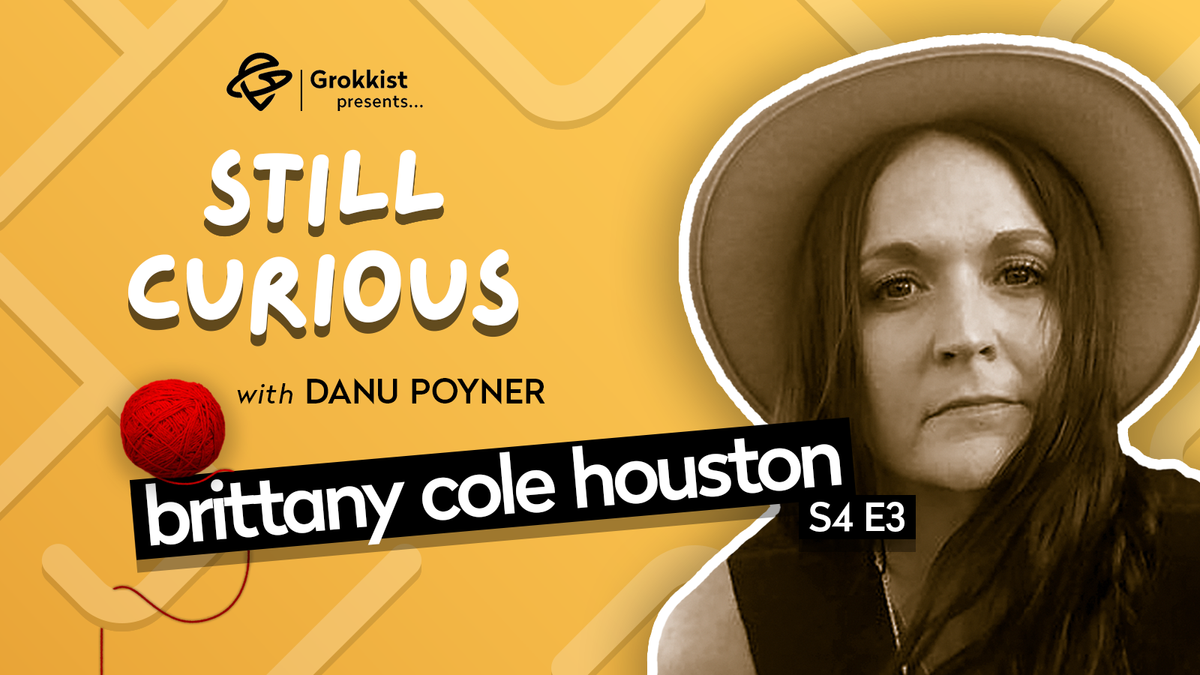
enrolment
The practice of giving yourself as a possibility to others, inviting them to co-create something meaningful.
In The Art of Possibility, Benjamin and Rosamund Zander describe enrolment as “the art and practice of generating a spark of possibility for others to share.” It’s not about persuasion or convincing; it’s about authentically presenting yourself in a way that ignites curiosity and invites others into a shared journey of discovery. For grokkists, enrolment embodies a generous approach to connection, focusing on mutual inspiration and the collaborative creation of new possibilities.
entanglement
The interconnected and inseparable relationships that bind people, ideas, and systems into a dynamic web of life.
Drawing inspiration from Merlin Sheldrake’s Entangled Life, entanglement challenges the very notion of individuality. Like fungi weaving through ecosystems, our lives are not discrete but profoundly interwoven with the lives of others and the world around us.
For grokkists, entanglement is a call to reimagine the boundaries of the self, seeing our actions, thoughts, and relationships as part of a greater, interconnected whole. It shifts the focus from independence to interdependence, revealing the richness of connection and the impossibility of true isolation.
ethical imagination
Ethical imagination is the capacity to discern and respond to what a situation calls for, balancing moral principles with the complexities of real-world contexts. It moves beyond rigid rules to act with wisdom, integrity, and care.
Hannah Arendt’s insistent plea to “think what we are doing” serves as a rallying call for ethical imagination. Arendt’s exploration of the banality of evil shows how bureaucratic systems, by fragmenting responsibility, enable thoughtless harm. Ethical imagination counters this by asking us to engage deeply with the human impact of our actions, reclaiming agency in systems that obscure it.
Rooted in virtue ethics, it aligns with Aristotle’s phronesis (practical wisdom): the ability to discern the right action at the right time. As Barry Schwartz and Kenneth Sharpe describe, it’s like moral jazz—an improvisational skill that goes beyond rules to meet the needs of the moment. For grokkists, ethical imagination re-enchants systems, prioritizing care and curiosity over efficiency, and reclaiming agency in spaces where rigidity often stifles humanity. It’s a practice of seeing what the situation calls for and acting with integrity and courage.
figure-it-out-ive-ness
The grokkist superpower of navigating ambiguity with applied resourcefulness, acquiring just-in-time knowledge, and embracing uncertainty with joy.
Figure-it-out-ive-ness is more than problem-solving—it’s a playful, adaptive mindset that thrives on curiosity and possibility. It’s what enables grokkists to step into complex, undefined situations and make progress by learning as they go.
This skill differentiates grokkists in terms of economic value, especially in a world that increasingly rewards those who can think creatively, learn quickly, and adapt to change. For grokkists, figure-it-out-ive-ness is not just about getting things done—it’s about finding joy and meaning in the process of discovery, transforming challenges into opportunities for growth.
flourishing
The act of living fully and authentically, in alignment with your values, potential, and deeper connections to the world around you.
Flourishing goes beyond fleeting happiness or measurable success—it is eudaemonia, the ancient Greek concept of a “good spirit” or the state of living well in accordance with one’s true nature. It’s not about chasing perfection but cultivating virtues like courage, compassion, and wisdom to navigate life with intention and integrity.
Flourishing is both deeply personal and relational. It’s about balancing individual growth with contributing to the well-being of others and the ecosystems we are part of. For grokkists, flourishing is a dynamic process—embracing growth, resilience, and connection, even amidst life’s imperfections. It’s living a vibrant and expansive life, not in isolation but as part of a broader fabric of meaning and care.
from generalist to grokkist
The evolution from being a generalist—a connector of ideas and domains—to becoming a grokkist, someone who embodies curiosity, care, and multidimensional integration as a way of life.
The term “generalist” has seen a resurgence of interest, rightly celebrating the adaptability and systems thinking that come from connecting diverse fields. But while being a generalist is valuable, it can feel like a shallow or clinical label, focusing more on breadth than depth. Grokkist, by contrast, is a deeper, more resonant identity.
A grokkist doesn’t just connect dots—they create entirely new constellations. They don’t simply know across fields—they grok, embodying a profound, empathic understanding that comes from integrating their varied interests and gifts into a cohesive, meaningful whole. The shift from generalist to grokkist is not about rejecting generalism but deepening it into a way of being that fosters connection, growth, and flourishing—for yourself and others.
Becoming a grokkist is about naming and claiming your uncategorizable uniqueness, stepping into a role that transcends conventional boundaries, and embracing the challenge of walking your own path with intention, curiosity, and care.

future guardian
Someone who consciously works to steward the present in a way that safeguards and enriches the well-being of future generations.
Future guardians embody the wisdom of the saying often attributed to Indigenous traditions: “We do not inherit the earth from our ancestors; we borrow it from our children.” This perspective challenges us to think beyond our immediate needs and take responsibility for the long-term impacts of our actions.
For grokkists, being a future guardian means cultivating curiosity, care, and ethical imagination to create a world where life can flourish for generations to come. It’s about acting as stewards of interconnected systems, honouring the balance between receiving the earth as a gift and passing it on as a legacy. By aligning their actions with this mindset, future guardians become bridges between the present and the possibility of a better future. [See also: kaitiaki]
grokkistry
The art and practice of grokking—cultivating deep, intuitive understanding through curiosity, care, and connection.
While grok is the act of deeply understanding, grokkistry is the practice of living in a way that embodies this ethos. It’s not just a skill or a moment of insight—it’s a way of engaging with the world that transforms learning into connection and connection into transformation.
Grokkistry reflects a commitment to openness, generosity, and ongoing discovery. For grokkists, every interaction becomes an opportunity to not only grok but to foster environments where others can do the same. It’s the intentional, lived expression of what it means to relate deeply to people, ideas, and the world itself.
groksmith
A skilled practitioner of grokking—someone who facilitates others toward flourishing by guiding them on their grokkist journey.
A groksmith is not only a maker and a mentor but also a facilitator of growth and connection. Their craft lies in helping others uncover their own capacity for curiosity, care, and deep understanding. By creating environments where people feel seen, supported, and empowered, groksmiths help others integrate their unique paths into a greater sense of purpose.
Being a groksmith means embodying the grokkist way of being—cultivating insight, fostering connection, and translating these into meaningful action. It’s not just about personal mastery but about guiding others to discover their own red threads, navigate uncertainty, and step into their potential with intention and authenticity.
You can experience what groksmithing looks like in practice through our Grokkist Projects — a menu of structured support for crossing meaningful thresholds, delivered by licensed groksmiths.
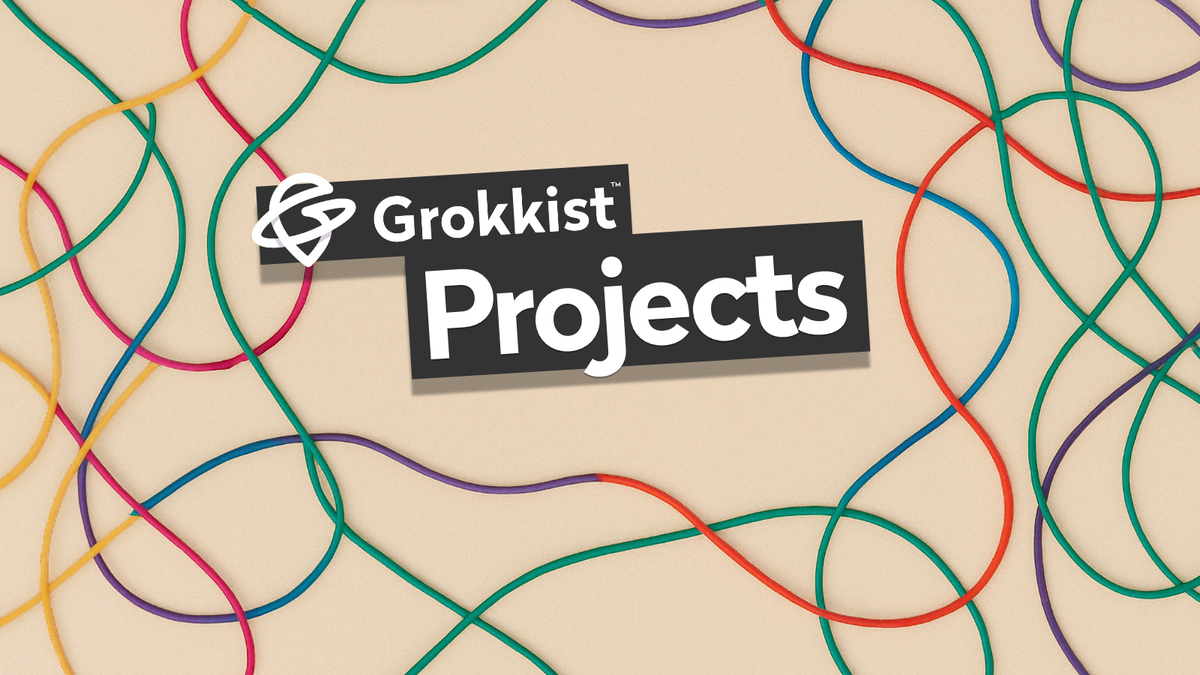
groktivism
Activism rooted in grokkist values of curiosity, care, and ethical imagination—a stance that seeks to create meaningful change through connection, creativity, and possibility.
Groktivism isn’t about confrontation or opposition as default responses; instead, it embraces curiosity and care to engage with the complexity of systems. It recognizes that some systems may need dismantling, but approaches even these challenges with a focus on ethical imagination and the possibility of building something better in their place.
This stance thrives on engaged ambivalence—holding space for tension, nuance, and multiple truths without rushing to oversimplify or polarise. For grokkists, groktivism is a creative and relational approach to activism, grounded in mutual respect and a belief that meaningful change often begins by inviting others into shared possibility.
hyper-responsibility
A bone-deep, often pre-verbal commitment to holding integrity, care, or coherence—in systems, relationships, or oneself—especially when no one else will. It surfaces as the silent vow: "If no one else will hold it, I will".
For many, this vow takes root in childhood, forged in the gaps where safety, structure, or fairness were missing. It can become a defining source of strength, powering a fierce sense of duty and an instinct to steady the ship when the waters rise. Hyper-responsibility can be noble, admirable, and even lifesaving—for others and for oneself.
But the same vow that gives shape to your care can also become a cage. When sacrifice becomes the default mode, it’s easy to equate worth with effort, or to mistrust joy, ease, and material security as somehow less pure. Learning to loosen that grip—allowing others to share the load, inviting support, and tending to your own flourishing—doesn’t betray the vow. It honours it in a way that sustains both you and the work you care about.
infinite loop of preparation
A pattern where learning becomes a form of procrastination, masking perfectionism and a fear of being seen.
The infinite loop of preparation often feels productive on the surface—gathering knowledge, refining plans, and perfecting skills. But for grokkists, it can be a subtle trap, where the pursuit of readiness delays the leap into action.
This loop is rooted in the tension between wanting to share your gifts and fearing vulnerability. By staying in a constant state of “not quite ready,” grokkists can avoid the risk of being seen or judged. Breaking free from the loop requires trusting that your curiosity and care are enough to take the first step, even when the path feels imperfect or incomplete.
Grokkists embrace learning as a lifelong practice but recognize when preparation has become an avoidance tactic. It’s about shifting from the safety of “someday” to the courage of “now,” allowing your work to be seen and to grow in the process.
instrumentalism
The reduction of things, people, or ideas to their utility or function, valuing them only as means to an end rather than for their intrinsic qualities.
Instrumentalism lies at the heart of many modern crises—when everything is reduced to its usefulness, we lose sight of meaning, connection, and purpose. Max Weber warned of this mindset in his concept of the “iron cage,” where rationality and efficiency dominate, leaving society trapped in systems that prioritise profit and productivity over human and ecological flourishing.
For grokkists, resisting instrumentalism means honouring the richness of life for its own sake. It’s about learning not to pass a test but to ignite curiosity; creating not for profit but for the joy of expression; and connecting with others not for gain but to foster genuine relationships. Grokkists strive to reorient life away from “means without ends” toward a balance that values processes, relationships, and experiences as inherently worthwhile.
To resist instrumentalism is an act of defiance and care, a refusal to live in a world that prizes an “ample body with a meagre soul.” Instead, grokkists approach life with curiosity and care, seeking to re-enchant systems and relationships with meaning, depth, and humanity.
If you want a description of our age, here is one. A civilisation of means without ends; Rich in means beyond any other epoch, and almost beyond human needs; Squandering and misusing them because it has no overruling ideal. An ample body with a meagre soul.
– Richard Livingstone (1945)
integration
The process of bringing disparate elements—ideas, experiences, or identities—into harmony, creating a cohesive and authentic whole without erasing their uniqueness.
Integration is central to grokkist philosophy and draws on traditions in systems thinking, Jungian psychology, and philosophy of mind. From Jung’s notion of individuation, where the self becomes whole by embracing and integrating its shadow and unconscious elements, to Ken Wilber’s integral theory, which seeks to synthesise knowledge across disciplines and paradigms, integration is a transformative act of coherence.
For grokkists, integration is a superpower. It’s the art of transforming fragmentation into something meaningful by recognising the value of each piece and weaving them together into a greater whole. Integration doesn’t demand uniformity; instead, it celebrates complexity, embracing the tension between contradictions and finding resonance in their interplay.
More than a skill, integration is a way of being—a stance that values nuance, connection, and depth. It’s about honouring the uniqueness of each element while forging connections that reveal shared patterns, themes, and possibilities. In this way, integration isn’t just the resolution of differences; it’s the creation of something entirely new and expansive.
interdependence
The mutual reliance and interconnectedness of individuals, communities, and ecosystems—a dynamic web where the well-being of one is intrinsically linked to the well-being of the whole.
Interdependence is both a reality and a practice. For grokkists, it begins with the recognition that nothing exists in isolation. From the mycorrhizal networks of forests to the entangled relationships of human communities, interdependence is the fabric of life. It challenges the modern ideal of rugged independence, offering instead a vision of collaboration, care, and shared flourishing.
Interdependence is not passive—it’s an active stance of mutual responsibility and reciprocity. It’s about nurturing connections that sustain life, respecting the needs of others (human and more-than-human), and making choices that honour the larger systems we are part of. For grokkists, interdependence invites a shift in focus from individual achievement to collective thriving, where the health of the whole enhances the potential of each part.
This concept aligns with Indigenous wisdom, systems thinking, and ecological philosophy, which teach that the strength of any system lies in its relationships. To live interdependently is to act with humility and care, trusting that by supporting the whole, we also enrich ourselves. [See also: entanglement]
kairos clarity
A moment of opportune insight and alignment, where the right action becomes clear in the fullness of its timing.
Borrowing from the ancient Greek concept of kairos—the “right” or opportune time—kairos clarity is more than just good timing. It’s a felt sense of readiness that arises when conditions align, both internally and externally, to reveal the path forward.
For grokkists, kairos clarity is about tuning into the rhythms of your life and work, trusting that the most meaningful actions often emerge when you’re in sync with the moment. It’s not about forcing outcomes or rushing decisions but about staying open and attuned to the flow of curiosity, care, and connection until the next step becomes evident.
This clarity often comes after periods of uncertainty or exploration, when disparate threads come together to form a cohesive insight. It’s a reminder to honour the process of waiting, trusting that the right moment will arrive when you’re ready to act with purpose and authenticity. [See also: coddiwomple]
kaitiaki
A Māori term meaning guardian, steward, or caretaker, often of land, people, knowledge, or traditions.
In te ao Māori (the Māori worldview), kaitiaki embodies a relational ethic of guardianship rooted in reciprocity, care, and interconnectedness. It goes beyond mere responsibility; to be a kaitiaki is to recognise oneself as part of a living, dynamic system where care is both given and received. This stewardship is deeply relational—it honours the spiritual and ecological connections between people, the land (whenua), and all living things.
For grokkists, kaitiaki resonates as a guiding principle that aligns with the ethos of curiosity, care, and ethical imagination. Being a kaitiaki is not just about preservation—it’s about active nurturing, ensuring that the systems and relationships we depend on are enriched and sustained for the benefit of all, including future generations.
Kaitiaki reflects a commitment to holding space for growth, healing, and flourishing, whether in ecosystems, communities, or ideas. It reminds us that true guardianship is reciprocal—when we care for the world, the world sustains and inspires us in return. In the grokkist community, kaitiaki has become a symbol of shared responsibility and the act of co-creating spaces of belonging and possibility.

moral injury
The psychological and emotional distress that arises when one’s core values are violated, often through participation in or witness to systems, actions, or decisions that conflict with deeply held ethical beliefs.
Moral injury often emerges in institutional contexts, where the very structures meant to uphold practices like justice, care, or knowledge become complicit in obscuring or obstructing them. For grokkists, this can be acutely felt when working within systems that fail to align with their own values of curiosity, care, and ethical imagination.
This experience is not simply burnout or frustration—it’s a profound sense of betrayal, as though the institution itself has undermined the ideals it is supposed to represent. Whether it’s a healthcare worker forced to prioritise bureaucracy over patient care, a teacher unable to nurture curiosity within rigid educational systems, or any individual grappling with systemic inertia, moral injury leaves a lasting imprint on the psyche.
For grokkists, understanding moral injury is vital to resisting its effects. It requires creating spaces for reflection, connection, and healing, where people can reclaim their values and reimagine systems that honour the practices they are meant to sustain. It’s about turning the pain of dissonance into a catalyst for growth, fostering resilience while finding pathways to enact integrity and care within (or beyond) the constraints of broken systems.
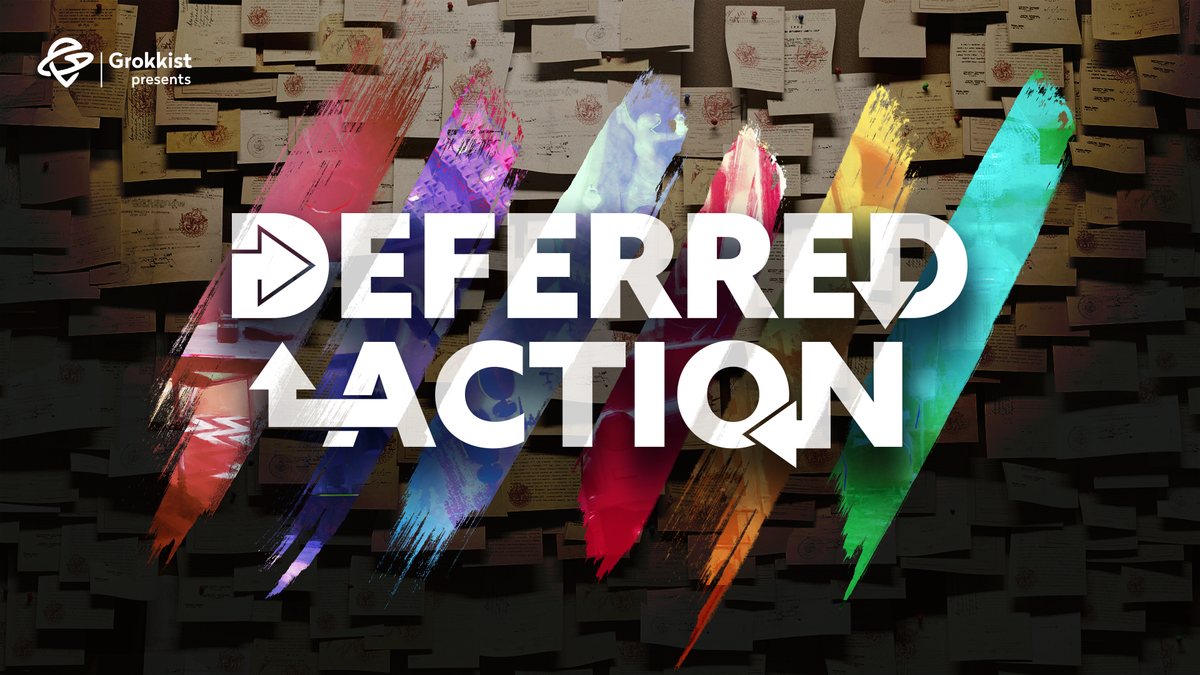
multi-dimensional misfit
A person whose interests, talents, and identity span many domains, often defying conventional categories or expectations.
Multi-dimensional misfits thrive in their ability to cross-pollinate ideas, but they often feel out of place in a world built for specialisation. Grokkists celebrate this multifaceted nature, viewing it as a source of innovation and creativity. [See also: category of one]
multi-hyphenate
A person with multiple professional identities or roles, connected by a common thread of curiosity or creativity.
Multi-hyphenates thrive on wearing many hats, navigating the intersection of diverse skills and passions. For grokkists, this isn’t about juggling obligations but about embracing the richness of multidimensionality. [See also: multi-dimensional misfit]
multi-potentialite
Someone with a wide range of interests and creative pursuits, who thrives on variety and exploration.
Multi-potentialites defy the pressure to choose a single path, instead weaving their diverse passions into a meaningful whole. Grokkists often recognise this as a source of joy and innovation, not a flaw to be fixed. [See also: cross-pollinating hummingbird]
neuro-spicy fog of unstructured enthusiasm
The exhilarating yet disorienting state that arises when a surge of creative excitement outpaces the structures needed to harness it—leaving a trail of brilliant ideas, unfinished tasks, and rising emotional turbulence in its wake.
This fog tends to roll in when inspiration strikes hard: a flood of insight, a rush of potential, a burst of enthusiasm that feels like flight—until it comes time to land. Without scaffolding to turn that energy into motion, tasks become overwhelming, priorities blur, and momentum dissolves into paralysis. For neurodivergent grokkists, this is a familiar pattern: brilliance followed by burnout, spark followed by stuckness.
But it’s not just a personal struggle—it’s a relational one. Someone else might step in to help, offering structure, clarity, and a way through. And then comes the twist: the same person who longed for help suddenly resists it. The scaffolding feels like confinement. The clarity feels like pressure. And the helper—especially if they’re neurotypical or just more organised—can feel confused, unappreciated, or fed up.
So why bother? Why walk into this fog with someone who might bite the hand that maps the plan?
Because within that fog lives the raw, electric pulse of aliveness. The person in it may be flailing, yes—but they’re also touching something new, something others can’t quite see yet. And with the right relational ecosystem—one that holds space for mess and mystery without trying to fix it too soon—that energy can be shaped.
The trick is not to force clarity but to co-create a container that feels like support, not control. A soft perimeter. A rhythm, not a rule. When someone shows up not to impose order, but to help midwife what’s trying to emerge, the fog starts to lift. Trust builds. Sparks catch. And something utterly unique begins to take form.
The neuro-spicy fog isn’t a bug—it’s a portal. What matters is how we meet it.
parts work
A therapeutic approach that recognises the mind as comprising distinct “parts,” each with its own perspective, feelings, and needs, and focuses on integrating them into a cohesive whole.
Rooted in frameworks like Internal Family Systems (IFS) and psychosynthesis, parts work aligns deeply with grokkist values of curiosity, care, and integration. It invites individuals to explore their inner world with openness, acknowledging the complexity of their psyche and fostering growth through self-discovery.
Parts work doesn’t seek to suppress or override these inner voices but to honour their diversity and understand their roles—whether protective, wounded, or striving. By developing a compassionate relationship with these parts, individuals can navigate internal conflicts, transform resistance into collaboration, and work toward a sense of unified purpose and authenticity.
For grokkists, parts work resonates as a way of embracing the messy, multidimensional nature of being human. It mirrors the grokkist ethos of integration—not erasing differences but weaving them into a greater, harmonious whole. By fostering inner alignment, parts work helps individuals move through life with greater clarity, resilience, and integrity. [See also: integration]
pendulation
The natural rhythm of moving back and forth between opposing states, such as tension and relaxation, or comfort and challenge, as part of a process of growth and healing.
Borrowed from trauma therapy frameworks like Peter Levine’s somatic experiencing (highlighted in The Body Keeps the Score by Bessel van der Kolk), pendulation refers to the way our nervous system naturally oscillates between activation and calm. This movement allows us to process difficult experiences without becoming overwhelmed, gradually expanding our capacity for resilience and recovery.
For grokkists, pendulation serves as a powerful metaphor for life’s rhythms. It teaches the importance of balancing the desire to stretch toward new horizons with the need to return to a place of rest and grounding. Pendulation isn’t about avoiding discomfort but about pacing—honouring the ebb and flow that allows for sustainable growth.
By embracing this rhythm, grokkists can navigate complexity and change with greater ease, knowing that progress often happens in cycles rather than straight lines. It’s a reminder that growth is not a relentless push forward but a dynamic dance between challenge and restoration.
possibility space
The range of potential actions, ideas, or outcomes available within a given context, shaped by the rules, constraints, and creativity brought to the situation.
Originating in game development, possibility space refers to the landscape of choices and opportunities a player can explore within a game’s design. It’s the sandbox of creativity where rules define the framework, but imagination defines the experience. In a grokkist context, possibility space becomes a metaphor for the infinite potential within systems, relationships, and ideas.
Grokkists expand the possibility space by questioning assumptions and exploring unconventional paths. Drawing on the spirit of Benjamin and Rosamund Zander’s The Art of Possibility, grokkists invite curiosity, care, and ethical imagination into every interaction, transforming constraints into opportunities for innovation and connection.
Possibility space isn’t static—it grows and evolves as grokkists stretch the boundaries, co-creating new potentials with others. It’s about more than finding what is available; it’s about reimagining what could be. By choosing to see constraints as generative rather than limiting, grokkists shift the focus from problems to possibilities, opening doors to transformative outcomes that previously seemed unimaginable.
power pong
The well-intentioned but often frustrating dynamic where responsibility and authority bounce uncertainly between individuals, leading to miscommunication, hesitation, and unintended friction in democratic, non-hierarchical spaces.
Power pong emerges when everyone wants to contribute meaningfully and respectfully, yet struggles with the ambiguity of roles and ownership. Grokkists, often shaped by past experiences with trust and institutional authority, bring a sensitivity to power dynamics that can create tension—even in self-aware and inclusive spaces. The desire to avoid imposing on others, coupled with a reluctance to step into leadership without explicit invitation, leads to fitful and half-hidden attempts to claim direction or move things along.
In these moments, momentum can stall as well-meaning individuals hesitate to act for fear of overstepping, while others, unsure of where they stand, inadvertently complicate things by stepping in or stepping back at the wrong time. Those who take initiative may feel as though their efforts are being undermined or taken from them, while others worry about maintaining a sense of collective ownership.
For grokkists, addressing power pong requires a balance of curiosity and care—cultivating psychological safety, clarifying shared expectations, and fostering a culture where leadership is fluid but not ambiguous. By openly acknowledging these dynamics and inviting honest dialogue, the collective can navigate power with intention and keep momentum alive without sacrificing inclusivity. [Credit: Brittany C]
practice vs profession
A practice is a personal, evolving engagement with a craft or pursuit, valued for its intrinsic meaning and connection to a larger tradition. A profession is an externally defined role, shaped by societal expectations and often focused on measurable outcomes.
Philosopher Alasdair MacIntyre distinguishes practices and professions by their goods. Practices are defined by “internal goods”—the rewards that come from doing something well for its own sake, like the fulfillment of playing a musical piece beautifully or the deep satisfaction of helping someone grow. Professions, by contrast, are oriented around “external goods” such as money, recognition, or status, which, while important, can sometimes distract from the essence of the work.
For grokkists, practices are not just activities; they’re ways of engaging with the world that transcend individual effort. Practices invite participation in what James P. Carse calls an “infinite game,” where the aim is not to win but to contribute to something enduring—a living tradition that evolves over time. For example, a doctor focused on the practice of healing is guided by the joy of restoring health, whereas the profession of medicine might measure success through metrics like efficiency or patient volume.
Professions thrive when rooted in practices because they bring depth, meaning, and resilience to finite demands. For grokkists, aligning professional work with the internal goods of a practice transforms it into a lifelong journey of curiosity and care, where outcomes are enriched by the process itself. [See also: instrumentalism]
principled rebel
Someone who challenges norms, authorities, or systems based on deeply held ethical convictions, balancing dissent with integrity and care.
The principled rebel embodies a thoughtful and ethical approach to dissent. They resist not for rebellion’s sake but as an act of responsibility to uphold justice, fairness, or truth. From Sophocles’ Antigone, who defied a king's decree to uphold divine law, to contemporary ideas explored in Todd Kashdan’s The Art of Insubordination, the principled rebel stands as a bridge between critique and possibility.
For grokkists, being a principled rebel means navigating the tension between opposing what is wrong and envisioning what could be better. It’s about challenging systems thoughtfully and constructively, resisting the corrosive pull of instrumentalism while creating space for ethical imagination and connection.
Principled rebellion isn’t about rejecting rules wholesale but about questioning and reshaping them to align with core values. It’s a deeply relational act—one that seeks to transform systems through curiosity, care, and a commitment to flourishing. [See also: canny outlaw, professional nuisance]
professional nuisance
Someone who disrupts complacency in professional settings by asking inconvenient questions and challenging assumptions—all in the service of curiosity, care, and meaningful change.
Following in the footsteps of Socrates, the original gadfly of Athens, the professional nuisance acts as a “critical friend” to systems, organisations, and ideas. Socrates described his role as stinging the Athenians into reflection, holding them accountable to their values. Similarly, professional nuisances provoke thoughtful dialogue, pointing out blind spots and inconsistencies while encouraging systems to grow and evolve.
A professional nuisance doesn’t disrupt to irritate but to illuminate. They ask questions like, “Why do we do it this way?” and “What if we tried something new?” They speak the inconvenient truths that others shy away from, but they do so with care and purpose, ensuring their challenges invite connection and transformation rather than division.
For grokkists, being a professional nuisance is a playful yet principled role. It’s about keeping curiosity, care, and ethical imagination alive in environments prone to inertia or groupthink. As critical friends, they hold up mirrors to systems, not to tear them down, but to inspire reflection, accountability, and meaningful change. [See also: principled rebel]
red thread
A unifying thread that helps you make sense of your multidimensional journey, connecting the varied experiences, passions, and values that define who you are. It's the story you tell about your relationship with the practice that has held your interest the longest and that you most deeply care about.
The red thread is an ancient metaphor that appears across cultures as a symbol of connection and continuity. For grokkists, it goes beyond a simple narrative of skills or accomplishments—it’s the story of how you’ve shown up, over time, for the deeper practice that has quietly but persistently guided your curiosity and care.
In a world that prizes specialisation and linear career paths, grokkists often feel scattered, stitching together disparate parts of themselves. The red thread reclaims this complexity, revealing how your “squiggly” journey reflects a coherent relationship with the things that matter most to you. It’s not just about what you’re good at but about understanding the long arc of what you’re drawn to, what you stand for, and what gives your life meaning.
The red thread offers both clarity and grounding in times of uncertainty. It’s a way to honor the richness of your path while crafting a narrative that allows you to navigate complexity with intention and authenticity. It invites grokkists to recognise, name, and claim the connections only they can see—the weirdness, the wonder, and the practice that ties it all together. [See also: squiggly career, practice vs profession]
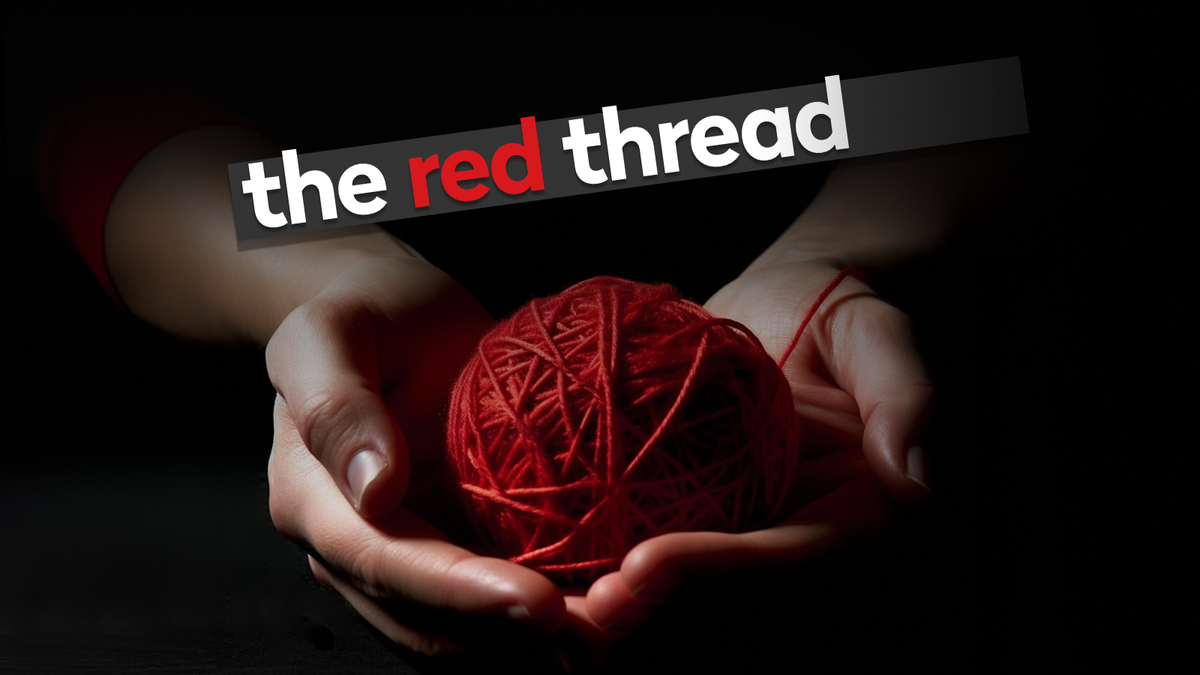
regenerative
An approach that goes beyond sustainability to actively restore, replenish, and enhance systems, creating conditions where life can flourish.
Regeneration isn’t just about preserving what exists—it’s about fostering renewal and growth. In ecosystems, this might mean restoring biodiversity; in communities, it could mean strengthening connections and empowering individuals. For grokkists, regeneration is both a mindset and a way of being, rooted in curiosity, care, and the belief that every action can contribute to a larger cycle of thriving.
Regenerative practices recognize the interconnectedness of systems and the need to leave them stronger, richer, and more vibrant than before. It’s an approach that honors the complexity of life by asking not just, “How can we sustain this?” but, “How can we help it flourish?”
Grokkist embodies regeneration not just in philosophy but in practice, cultivating a community and ecosystem where multidimensional thinkers can grow, connect, and contribute meaningfully. It’s about creating lasting impact through renewal—ensuring that individuals, ideas, and relationships don’t just survive but thrive together. [See also: flourishing]
re-patterning
The intentional process of unlearning old habits, beliefs, or patterns, letting go of what no longer serves you, and making space for small yet transformative shifts toward alignment and authenticity.
Re-patterning starts with the courage to let go—releasing familiar but unhelpful routines, assumptions, or ways of thinking. It’s not about sweeping changes overnight; it’s about embracing small, deliberate transformations that, over time, create profound shifts in how you engage with the world.
For grokkists, re-patterning is a dynamic process of growth. It’s about recognising where you’re stuck, experimenting with new approaches, and trusting the unfolding path. Letting go isn’t an act of loss—it’s a liberating step toward creating patterns that feel expansive and aligned with your purpose.
Re-patterning represents the intersection of reflection and action. It honors the complexity of change by focusing on what’s achievable now while opening the door to deeper transformation. Small steps become the building blocks for meaningful, sustainable growth.

shadow work
The process of exploring and integrating the hidden, suppressed, or unacknowledged parts of oneself, often those we’ve disowned or avoided.
Shadow work invites curiosity and compassion into the parts of ourselves that we might label as flaws, fears, or contradictions. Inspired by Carl Jung’s idea of the “shadow,” it’s about facing these aspects not as something to fix or eliminate but as vital pieces of the whole self.
For grokkists, shadow work is about acknowledging the diverse and sometimes contradictory parts of who we are, recognising that even the parts we hide can carry strengths and insights. By shining light on what we suppress, shadow work becomes a practice of reclaiming authenticity and finding harmony within. [See also: embracing your inner outlier, parts work, integration]
shoes-off self
The most authentic, relaxed version of yourself, free from pretense, social armor, or the pressure to perform.
Your shoes-off self is who you are when you feel safe, comfortable, and at ease—a version of yourself that doesn’t need to posture or adapt to external expectations. It’s the you that emerges when the world gives you permission to simply be.
For grokkists, the shoes-off self is both a personal aspiration and a relational practice. It’s not just about finding moments where you can embrace this authenticity—it’s about co-creating spaces where others feel safe enough to do the same. These spaces, rooted in curiosity and care, foster deeper, more meaningful connections, inviting everyone to show up as their full, unguarded selves.
The shoes-off self is a reminder that authenticity isn’t something you achieve alone. It’s something nurtured in community, where vulnerability is met with respect, understanding, and celebration. Grokkists aim to make these spaces a natural part of the world they build together, spaces where your shoes-off self isn’t just welcome—it’s celebrated. [See also: social armour]
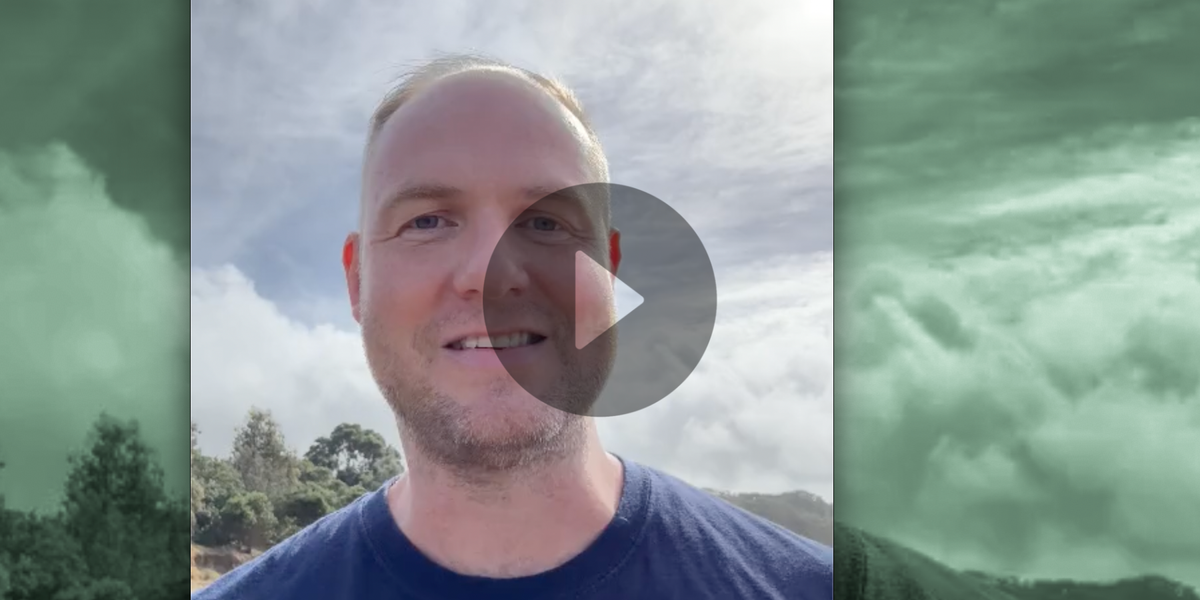
shoes-on communication
The practice of expressing your truth clearly and confidently in context—with voice, care, and impact. Shoes-on communication is how your inner clarity takes shape in the world as language that lands for real people, in real situations, with real stakes.
If your shoes-off self reflects authenticity, comfort, and safety, your shoes-on voice steps forward into conversation—shaped by audience, tone, and intention. It’s about walking your talk without losing what matters, even as you move through difference, friction, or fear.
For grokkists, shoes-on communication is an active expression of integrity and bridge-building. It means showing up—imperfectly but courageously—with words that feel real to you while crafted to connect with others. Not perfect words, but honest ones. The practice is less about nailing the message than about daring to speak, listening for how it lands, and adjusting with curiosity.
'Shoes-on' doesn’t mean putting on social armour. It means purposeful presence—choosing to bring your truth forward, even when the ground is uneven, and meeting others where they are so that understanding and connection can become possible.
social armour
The protective layer we wear to navigate societal expectations, shielding our authentic selves from judgment or rejection.
Social armour serves a purpose—it helps us adapt to environments that may feel unsafe or unwelcoming, allowing us to move through the world with a measure of protection. Yet, this armor can become a barrier, obscuring the parts of ourselves that long to connect deeply and authentically with others.
For grokkists, social armour represents the tension between self-protection and self-expression. While it shields us from harm, it can also stifle the shoes-off self—the most authentic version of who we are. Moving beyond social armour isn’t about discarding it entirely but about creating spaces where it’s safe to set it aside.
These environments, built on curiosity, care, and respect, allow grokkists to step into their vulnerability without fear. By fostering connections that honour authenticity, grokkists help others shed their armour too, making room for deeper understanding and mutual growth. [See also: shoes-off self]
speaking from the spool
The act of sharing your story or insights directly from your red thread, with authenticity and coherence, often revealing the spark of what truly lights you up.
To speak from the spool is to draw from the heart of your experiences, letting your words flow naturally from the connections and meaning you’ve woven over time. It’s a way of communicating that’s alive, where the passion and clarity of your red thread shine through—not just in the content of what you say but in how it transforms you as you speak.
For grokkists, this transformation is unmistakable: when someone speaks from the spool, their eyes brighten, their energy shifts, and their whole being seems to align. It’s an act of trust and resonance—trust in the red thread to guide you and in others to meet your authenticity with curiosity and care.
Speaking from the spool isn’t about rehearsed perfection; it’s about creating moments of genuine connection. When grokkists share in this way, they don’t just communicate ideas—they offer something vital and alive, sparking recognition and possibility in those who listen. [See also: red thread]
squiggly career
A non-linear career path shaped by curiosity, exploration, and the pursuit of diverse interests, often defying traditional narratives of advancement and achievement.
As grokkists, many of us walk around in constant fear of being asked, “So, what do you do?” Because we allow curiosity to guide us, our careers often zigzag, accumulating experiences that don’t fit neatly into professional boxes. If we ever had a Plan A, we’ve likely long since forgotten it.
For grokkists, the moment we’ve learned everything there is to learn in a role is when boredom sets in, pushing us toward new horizons. A squiggly career isn’t about abandoning paths; it’s about following the threads that spark curiosity and growth.
The narrative of a squiggly career isn’t linear but dynamic, more like a long-form TV show than a straight-line story. Each chapter is unique and self-contained yet connected by an overarching theme. When we embrace our squiggly story, we can better see the red thread that ties it all together, helping us articulate it in ways that feel true to our multidimensional selves. [See also: red thread, practice vs profession]
storydoing
The act of turning your values, insights, and narratives into intentional, impactful action that embodies what you care about most.
For grokkists, storytelling is an essential way of weaving meaning and coherence into our lives, but it’s only part of the journey. Storydoing is the moment when the red thread of your life story is realised through action, stepping into your power.
Storydoing is the difference between saying what you believe and showing it through your choices and contributions. By aligning action with insight, grokkists transform abstract stories into tangible realities, creating undeniable experiences that inspire and connect.
Storydoing is an antidote to the infinite loop of preparation, where learning becomes a shield against risk. It invites grokkists to embrace the complexity of stepping forward imperfectly but authentically, trusting that action itself becomes part of the story. It’s where courage meets curiosity, and where the narrative you’ve been telling yourself about who you are begins to manifest in the world. [See also: red thread, from generalist to grokkist, infinite loop of preparation]

synthesis
The creative process of combining disparate elements, ideas, or experiences into something new, cohesive, and transformative, often by embracing the contradictions and in-between spaces where connection happens.
The term originates from the Greek synthesis, meaning “putting together.” In Hegelian dialectics, synthesis resolves the tension between opposing ideas (thesis and antithesis), creating a higher-order understanding. For grokkists, synthesis is less about resolving contradiction and more about finding comfort within it—working in the in-between spaces where complexity and creativity intersect.
Synthesis is at the core of grokkist creativity. It’s not about forcing coherence or erasing differences but about weaving seemingly unrelated experiences, ideas, and perspectives into something rich and meaningful. This process thrives in liminal spaces, where contradictions aren’t obstacles but invitations to explore, question, and reimagine.
By inhabiting the tension between what is and what could be, grokkists transform fragmented parts into something expansive and whole. Synthesis isn’t just about making sense of the world—it’s about enriching it. It’s a practice of creating, connecting, and expanding the possibility space, guided by curiosity, care, and a deep respect for the beauty of complexity.
takiwātanga
A Māori term meaning “in their own time and space,” coined as an enriching and respectful way to describe autism as a unique way of being rather than a condition.
Coined by Keri Opai in Te Reo Hāpai – The Language of Enrichment, takiwātanga breaks free from deficit-driven language, celebrating the unique rhythms and perspectives of autistic individuals. Rooted in te ao Māori, it invites us to rethink difference as a source of richness, not a problem to solve. This concept challenges us to create spaces where people can thrive on their own terms—meeting them with curiosity, respect, and a willingness to see the world through their eyes.
threshold guardian
A person, force, or inner resistance that challenges your readiness to step into a new stage of growth or transformation.
Threshold guardians hold symbolic power in the journey of change, both protecting and testing the one who seeks to cross. Popularised in Joseph Campbell’s hero’s journey, these figures are gatekeepers of transition, ensuring that only those who are prepared—and who deeply understand what is at stake—can move forward.
For grokkists, threshold guardians often appear as moments of inner doubt, external challenges, or relationships that force clarity and courage. They’re not merely obstacles; they’re teachers, demanding you confront your fears, refine your intentions, and step into the unknown with purpose. Whether they appear as mentors who guide or adversaries who oppose, their role is to amplify the significance of the threshold, highlighting what must be left behind and what awaits beyond.
Crossing the threshold marks a transformation, a passage where the familiar is shed and something latent is revealed. Grokkists embrace these moments with curiosity, recognizing that growth often requires wrestling with discomfort and uncertainty. In doing so, they learn that the guardian is not just an external force but also a reflection of their own inner readiness to change.
threshold moment
A pivotal point of transition, where stepping forward requires courage and signals transformation.
Threshold moments are liminal spaces—places of profound tension and possibility. The word threshold originates from the Old English threscwald, meaning the plank or sill of a doorway, a symbolic marker of transition. Relatedly, the verb threshing—the act of separating grain from husk—evokes the literal uncovering of what is hidden beneath. In the same way, threshold moments make visible what was once obscured, stripping away what no longer serves to expose the essential.
These moments hold a paradoxical energy, balancing urgency with calm and uncertainty with readiness. They demand more than a step forward—they call for a shedding of the familiar and a willingness to embrace the unknown. For grokkists, threshold moments are not just markers of change; they are acts of becoming, where transformation lies as much in the crossing as in what awaits on the other side.
unauthorised excellence
When someone is brilliant in a way they weren’t supposed to be.
Unauthorised excellence is what happens when someone demonstrates skill, insight, or achievement outside the sanctioned pathways—when talent emerges without the expected credentials, affiliations, or institutional backing, and it makes the establishment deeply uncomfortable. Not because the excellence isn’t real, but because it wasn’t authorised.
It’s the self-taught artist outpacing trained professionals, the junior employee who proposes the best idea in the room, the outsider who innovates beyond what insiders imagined possible. It’s especially visible when someone from a marginalised background excels in a space that wasn’t built for them. Rather than being welcomed, unauthorised excellence is often met with skepticism, downplaying, or outright resistance—because it exposes the reality that systems designed to reward merit often prioritise compliance just as much as competence.
For grokkists, unauthorised excellence is both an inevitability and a quiet rebellion. It’s the refusal to wait for permission to be great, the ability to flourish outside preordained tracks, and the deep satisfaction of knowing that excellence doesn’t need a stamp of approval to be real.
unlock your grok
The process of identifying, understanding, and integrating the key threads of your life—your passions, values, and lived experiences—into a coherent, actionable way of being that aligns deeply with what you care about most.
To “unlock your grok” is to embark on a journey of self-discovery and integration, reclaiming the fragmented parts of yourself and recognizing the red thread that weaves through your experiences. It’s about unforgetting the intuitive, empathic, and holistic understanding that has always been within you. This process invites you to step into the journey from generalist to grokkist, navigating complexity with curiosity, care, and confidence. More than a moment, unlocking your grok is an ongoing practice—a conscious unfolding that enables you to align your actions with your values and show up authentically in the world. [See also: red thread]
visibility bottleneck
Being brilliant once people are already paying attention, but struggling to get them to stop and listen in the first place.
A visibility bottleneck isn’t about lack of value—it’s about the friction between depth and discoverability. Those who experience it often:
- Over-index on depth and resonance, assuming people will naturally find them if their work is good enough.
- Struggle to name what they do in a way that hooks people before they’re already invested.
- Feel allergic to self-promotion, because the usual tactics feel superficial or inauthentic.
The challenge isn’t about becoming more visible—it’s about removing the obstacles that keep people from seeing what’s already there.
warm syrupy silence
A deliberately held, comforting pause in conversation that invites reflection, presence, and gentle emergence—rather than demanding immediate response.
Warm syrupy silence is part of the facilitator’s toolkit in grokkist spaces—a named and intentional pause that signals nothing is expected, and no one is being put on the spot.
Simply saying, “Let’s sit in a bit of warm syrupy silence,” invites a collective exhale. It creates a moment that feels spacious rather than empty, soothing rather than awkward. In a culture that often treats silence as a problem to solve or a gap to fill, this small act reclaims stillness as something sweet, slow, and shared. It’s one of the subtle ways we craft spaces where people feel unhurried, unextracted, and gently held.

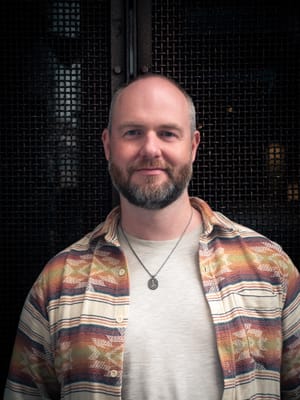
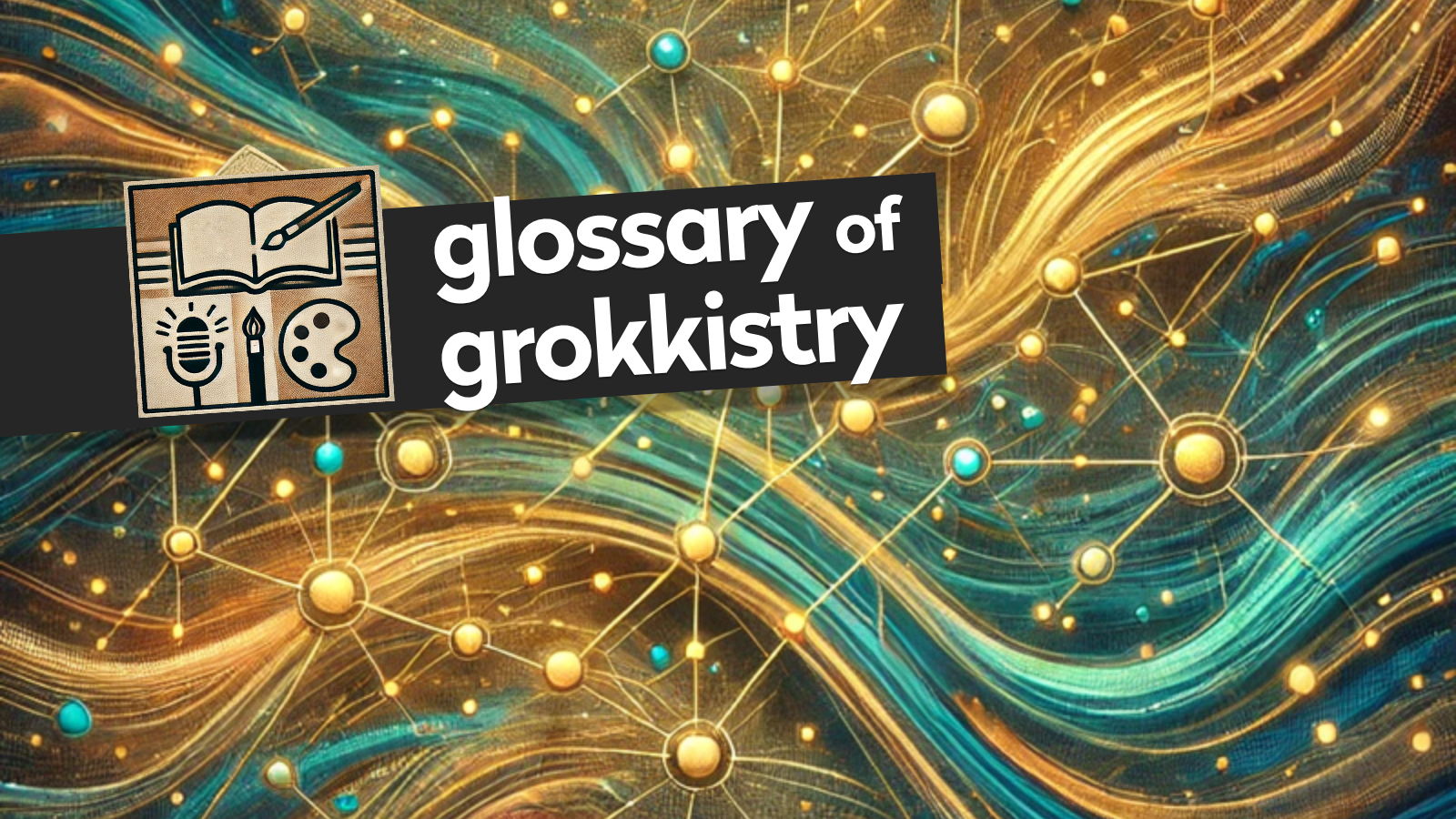
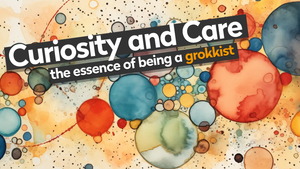

















Member discussion